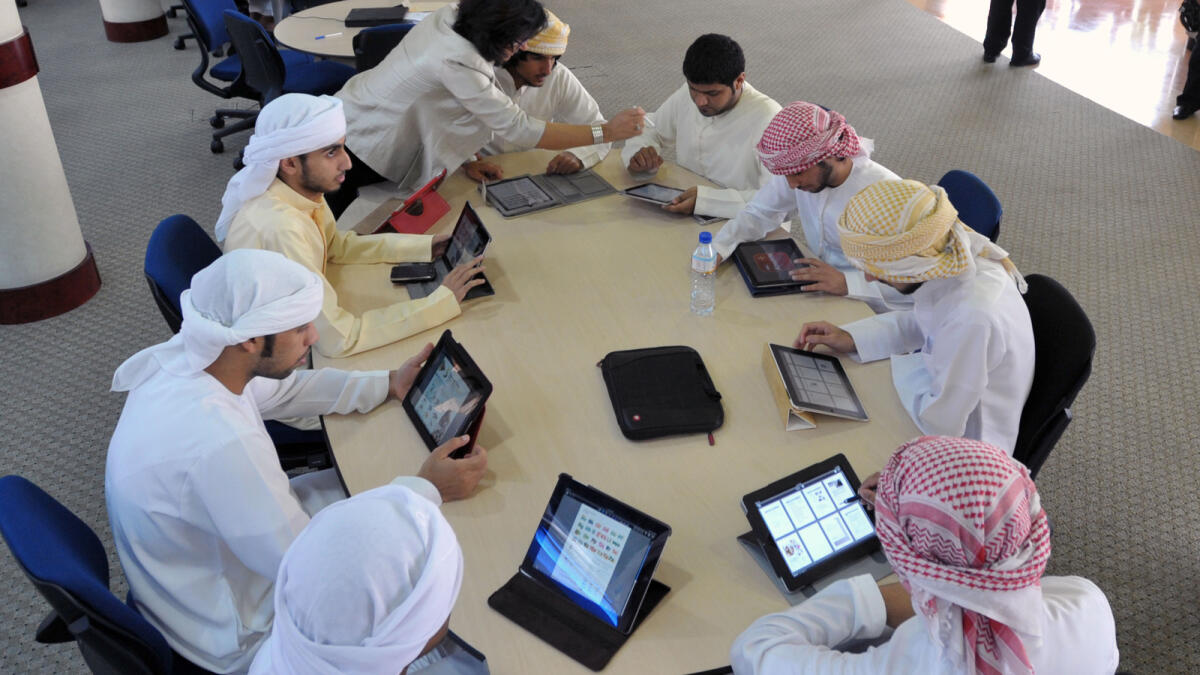In a recent article, University student Rawdha Mohamed shares her journey of completing a professional course in media and filmmaking and her plans to further develop her skills by enrolling in sports journalism courses. Rawdha, who is in her early 20s, aims to increase her chances of landing a job in the media industry and is part of the UAE youth keen on acquiring professional skills to stand out to employers. Career counsellor Natasha Parikh emphasizes the importance of enrolling in courses that enhance employability, stating that today’s students are becoming future-ready through such initiatives.
Rawdha, who currently works as a media intern, is pursuing a Bachelor’s degree in Interior Design at Ajman University to broaden her skills in design and aesthetics. She believes that her dual approach will allow her to build a versatile portfolio, positioning her well for a successful career post-graduation. Emirati electrical engineer Maryam Almansoori also pursued professional courses during her college years to enhance her skills and remain competitive in the job market. By complementing academic education with practical experience, Maryam positioned herself to bridge the gap between theory and practice, preparing herself for her future career.
Online learning platform Coursera recently launched a report highlighting the increasing use of micro-credentials by academic institutions worldwide. The report shows that universities are supplementing traditional degree programs with industry-specific micro-credentials to produce job-ready graduates. According to the report, a majority of higher education experts believe that students are more likely to enroll in programs offering academic credit for industry-recognized credentials. In the UAE and Saudi Arabia, students agree that earning a professional certificate would help them stand out to employers and secure a job post-graduation.
Coursera’s general manager for the Middle East and Africa, Kais Zribi, emphasizes the importance of aligning curricula with the demands of the job market. By incorporating job-relevant content and micro-credentials, universities can help students develop the skills necessary to succeed in future careers. Natasha Parikh, CEO of My Learning Curve, further supports this idea by highlighting how professional courses equip students with real-world skills, making them competitive for both college admissions and the job market. She gives examples of students who have pursued coding, robotics, digital marketing, and machine learning courses to enhance their skills and stand out in the job market.
In conclusion, the article underscores the importance of acquiring professional skills through courses and certifications to enhance employability and stand out to employers. With the increasing use of micro-credentials in academic institutions, students have the opportunity to supplement their traditional education with industry-specific skills, making them more job-ready post-graduation. By staying up to date with the latest trends in the job market and aligning curricula with industry demands, students can better prepare themselves for successful careers in the future.











